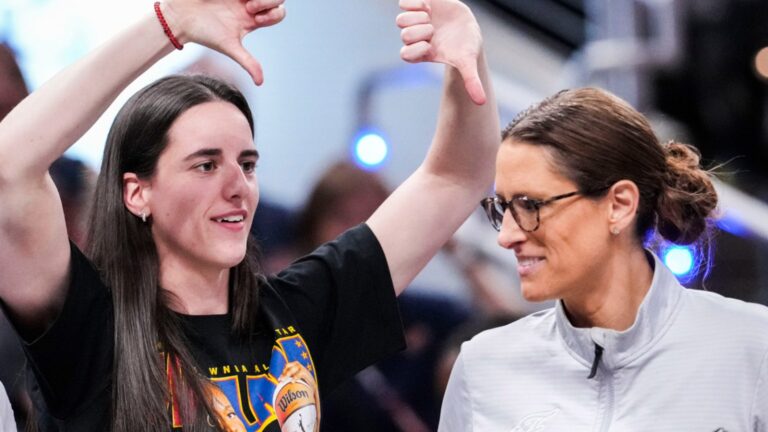
Madonna, the undisputed Queen of Pop, has announced the launch of a new world tour to celebrate an extraordinary milestone—40 years of groundbreaking music, style, and cultural influence. Known for constantly evolving her sound, image, and public persona, Madonna continues to captivate audiences worldwide with her unmatched versatility, boldness, and artistic innovation. This highly anticipated world tour promises to honor her incredible career and legendary status, showcasing the depth of her discography and the remarkable impact she’s had on music, fashion, and social movements over the last four decades.
A Journey Through 40 Years of Reinvention
Madonna Louise Ciccone’s rise to stardom began in the early 1980s, when she moved to New York City to pursue her dreams of becoming a professional dancer. Little did the world know that this determined young woman would go on to become one of the most influential figures in music history. Her self-titled debut album, released in 1983, set the stage for a career that would go on to break barriers and redefine what it means to be a pop star.
Madonna’s impact on music, culture, and society is unparalleled. From her early 80s hits like “Holiday” and “Lucky Star,” to the boundary-pushing artistry of “Like a Prayer” and “Vogue,” Madonna’s music and image have always reflected her desire to push societal boundaries, challenge norms, and break free from the constraints imposed on women in the music industry. Over the years, she has become synonymous with reinvention, using her art to explore themes of empowerment, sexuality, religion, identity, and love.
Each of Madonna’s albums has marked a distinct phase in her career, but also in the evolution of pop music itself. “Like a Virgin,” “True Blue,” “Like a Prayer,” and “Erotica” are just a few of the pivotal releases that not only shaped Madonna’s artistic journey but also left a lasting legacy on pop music, music videos, and live performances. Her bold experimentation with fashion, music videos, and stage design has influenced countless artists across genres, and her ability to shape public discourse around gender, sexuality, and personal freedom has made her a pop culture phenomenon for over four decades.
The Impact of Madonna’s Music
Madonna’s musical influence cannot be overstated. From pop anthems to ballads, her ability to transcend genres and explore diverse sounds has helped shape the musical landscape of the last 40 years. Tracks like “Material Girl,” “Into the Groove,” “Like a Prayer,” “La Isla Bonita,” “Hung Up,” and “4 Minutes” have become iconic, dominating the charts and capturing the hearts of millions of fans around the world. Through her musical versatility, she has consistently stayed ahead of trends, all while maintaining a distinctive and unmistakable voice.
In addition to her musical talents, Madonna has become known for her profound understanding of the music video as a visual art form. Her groundbreaking videos, particularly those for songs like “Vogue,” “Like a Prayer,” and “Express Yourself,” elevated the music video medium into something much more than just a promotional tool. These videos, coupled with her fierce performances and carefully curated stage designs, established her as not only a singer but a multimedia artist.
Her career also intersected with pivotal cultural moments and movements, including the rise of the LGBTQ+ rights movement, feminist discourse, and the sexual revolution. Through her music, she was one of the first to openly address themes of sexual freedom and gender fluidity, empowering individuals to embrace their own identities and live authentically.
A Celebration of Madonna’s Career and Legacy
Madonna’s 40th anniversary tour is much more than just a concert series; it’s a celebration of an entire era defined by reinvention and audacity. Over the course of her career, Madonna has proven time and again that she is much more than just a pop singer—she is an artist who understands the power of self-expression and its potential to spark conversation, change, and reflection.
The tour will feature a carefully curated setlist, one that spans Madonna’s expansive and diverse catalog of music. Expect to hear iconic tracks from her early years, like “Holiday” and “Borderline,” as well as later hits such as “Hung Up,” “La Isla Bonita,” and “Madame X” tracks. She is known for giving fans a complete experience, blending music with choreography, lighting, and visual elements to create a spectacle that is as much about the journey of her career as it is about the songs themselves.
Moreover, the tour will serve as a reflection of the cultural landscape she has shaped and the influence she has had on both her peers and the artists who followed her. As the first woman to dominate the pop charts while maintaining total creative control over her image and sound, Madonna broke the mold for what it meant to be a successful female artist in a male-dominated industry.
The Art of Reinvention
A key element of Madonna’s career has been her constant reinvention. Whether it’s her ever-evolving fashion sense, the way she consistently reshapes her image for every new album, or her fearless exploration of new musical styles and genres, Madonna has never allowed herself to be boxed into any one thing. This tour, like all of her others, will reflect the transformative and boundary-pushing approach she has taken throughout her career.
Her ability to constantly adapt and evolve is perhaps best showcased in her live performances. Each tour has brought new choreography, stunning visuals, and intricate stage designs that reflect the themes of the time and the era in which the music was made. Fans can expect a modern, innovative experience that integrates elements of her rich catalog, while also keeping pace with today’s technological advancements in stagecraft and concert design.
Madonna and the Fans: A Connection that Spans Generations
While Madonna has seen many changes in the music industry and the world around her, one thing has remained constant: her connection with her fans. From the very beginning of her career, Madonna was not only a pop star but also a role model, a confidante, and a voice for those who felt marginalized or misunderstood.
Her fanbase is as diverse as her music, spanning multiple generations and all corners of the globe. For fans who have been with her from the beginning, the 40th anniversary tour will undoubtedly be a chance to relive the magic of their favorite Madonna songs and memories. For younger fans who may have come to her music later, the tour offers a unique opportunity to experience the legendary performer live and witness firsthand the power of her music and presence.
Madonna’s ability to forge this deep emotional connection with her audience is what sets her apart from other pop stars. For decades, she has stood for empowerment, individuality, and freedom—values that resonate with people of all backgrounds and walks of life. This tour, like all of her work, will serve as a reminder of the importance of staying true to oneself and embracing the power of art to inspire change.
A Legacy That Endures
Madonna’s 40th anniversary tour is not just a celebration of the past, but also an acknowledgment of the lasting impact she continues to have on the music industry and culture at large. In an era where trends change rapidly and the lifespan of many artists is short-lived, Madonna has remained a cultural force for four decades. She has shown that the true power of an artist lies not in their ability to fit into a box, but in their capacity to break free from it—and this is what Madonna has done time and time again.
As the tour unfolds, fans can look forward to an experience that honors not only the legendary music but also the bold spirit of reinvention and defiance that has defined Madonna’s career. Through the 40 years of hits, controversies, triumphs, and challenges, Madonna’s legacy as a trailblazer, visionary, and artist is undeniable. And as she takes the stage once more, fans around the world will witness the continuing evolution of the Queen of Pop.






